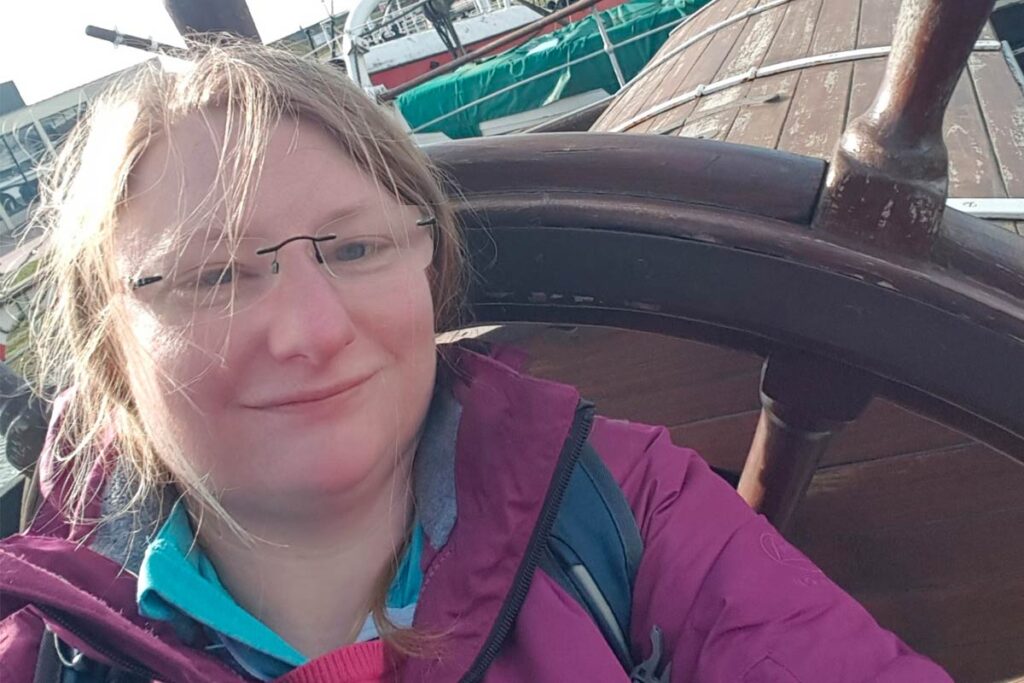CPE Stories: Finding Joy in Transitions

Miriam Schmidle
she/her/hers
MDiv
Clinical Pastoral Education (CPE) is a transformative inter-faith experience that allows divinity students to learn from spiritual practitioners about pastoral care through experiential learning in clinical pastoral settings–hospitals, congregations, and ministries.
Miriam Schmidle, a third-year MDiv student, shares her CPE experience and what it has taught her about finding joy in transitions.
Where did you complete your Clinical Pastoral Education (CPE)?
I completed CPE in Indiana. I would describe the part of Indiana I was in as rural on the one hand. On the other hand, you still have a lot of people commuting to Chicago.
What were the most prevalent types of care your CPE internship offered?
Unlike most students, I completed my CPE in a congregation where I was responsible for building relationships with seniors.
So, I was really focusing on pastoral care in congregations as I reached out, especially to people who were not able to come to worship in person but were worshiping online or are still worshiping online. For example, I was able to give communion to seniors or those who were homebound, and I got to make sure they received communion in person. I felt like this was really a blessing for them.
What was most enjoyable about working at your CPE internship?
I would say I love that you get the feeling that you give something to the people and that they appreciate your work, what you are doing.
What was difficult about working at your CPE internship?
At first, I found it difficult to find a CPE location that could meet my needs. Once I began my CPE internship, it was difficult to fulfill my 8–12-hour day requirements because I was working within a congregational setting and not a hospital where you have more demands.
What skill do you feel like you brought to CPE?
In Germany, my home country, I worked as a volunteer emergency pastoral care person, and I was a paramedic for 16 years. So, I entered CPE with a lot of background knowledge. Many of the situations I encountered were not new for me.
When I worked as a pastoral care person in Germany, I would have to tell loved ones that their family member passed away. So, you’re going with a police officer to a family and saying something that will forever change their lives. This is one the hardest things I have ever done in my life.
While I didn’t have to have these tough conversations at my CPE site (I would consider myself lucky), I am grateful I had these tools in my back pocket.
How has CPE prepared you to be a faith leader in the public church?
CPE is an important part on the formation to become a Pastor. CPE teaches us that Pastoral Care is more than holding a hand. CPE teaches us to listen. CPE teaches us a lot about ourselves. These skills are necessary for our pastoral work.
LSTC is transitioning from our historic home to a new location which can be both daunting and joyous. What has CPE taught you about finding joy in transitions?
I would say I’m a person who always has hope and who always tries to see the good things in a situation. This is one of the reasons I was able to continue my work as a volunteer emergency care person for so long because I was always looking for the positive. If you don’t look for the positive in your profession, you just break. Then, you are not able to continue that work.
LSTC’s building at University Avenue was a home space for me and others. Moving requires change, but change is necessary. I am looking forward to what the future will bring.